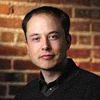Report from moneywatch.com:
ALLYSON AMES
President and co-founder of Wonderland Bakery
http://wonderlandbakery.com
Wonderland Bakery’s president and co-founder, Celebrity Chef Allyson Ames, was named one of the richest kids in America by Mark Victor Hansen, respected authority in the area of human potential and creator of the best-selling Chicken Soup for the Soul series.
Hansen’s new book, The Richest Kids in America, is the result of a three-year research project in which he set out to chronicle the journeys of North America’s most successful young entrepreneurial superstars.
Hansen tells the inspiring story of Ames, 23, who has steadfastly pursued her passion for baking and childhood dream of having her own “wonderland.”
Allyson Ames will begin a media tour sharing her story including NBC’s The Today Show, August 3rd at 10:00am and CNBC’s Squawk on the Street, August 11th at 7:00am.
Ames has created Wonderland Bakery, a unique retail bakery concept specializing in cupcakes, cookies, artistic cakes and whimsical gifts. An enchanting mix of equal parts Willy Wonka’s Chocolate Factory, Alice’s Wonderland and Candyland, Ames and Wonderland Bakery’s celebrity following has earned national media attention.
She has created cookies for President Barack Obama’s inauguration day events, baked the reigning “Best Gingerbread Cookie” according to Whoopi Goldberg and The View, and Governor Arnold Schwarzenegger honored Wonderland Bakery with the 2008 California Business of the Year Award.
Ames is a culinary prodigy who started cooking and baking at age five, and was named The Best Young Chef in America at age 17. She is the Official Sweet Ambassador for Newport Beach and has been tapped as one of the hottest Hollywood celebrities under the age of 25 by Variety magazine.
She has recently added to her brand a collection of “Bake Memories at Home” desserts, a mesmerizing line of merchandise, a best-selling book, Wonderlicious The Enchanting and Delicious Wonderland Bakery Adventure, a read-a-long book for the animated Allyson Wonderland bear by Gund.
This holiday season, Ames will commence an expansion plan that includes whimsically designed point-of-sale displays that will be placed in retail locations from coast to coast. She is in negotiations to host a children’s cooking show; internationally license the Wonderland Bakery brand of toys, games and products; and will expand with five new Wonderlicious party, cafe and retail stores in major markets, with the first stores in Los Angeles and Las Vegas.
“Allyson Ames has an amazing story that will inspire other entrepreneurs to dream big, make it work and build a commanding brand,” said Hansen.
























































